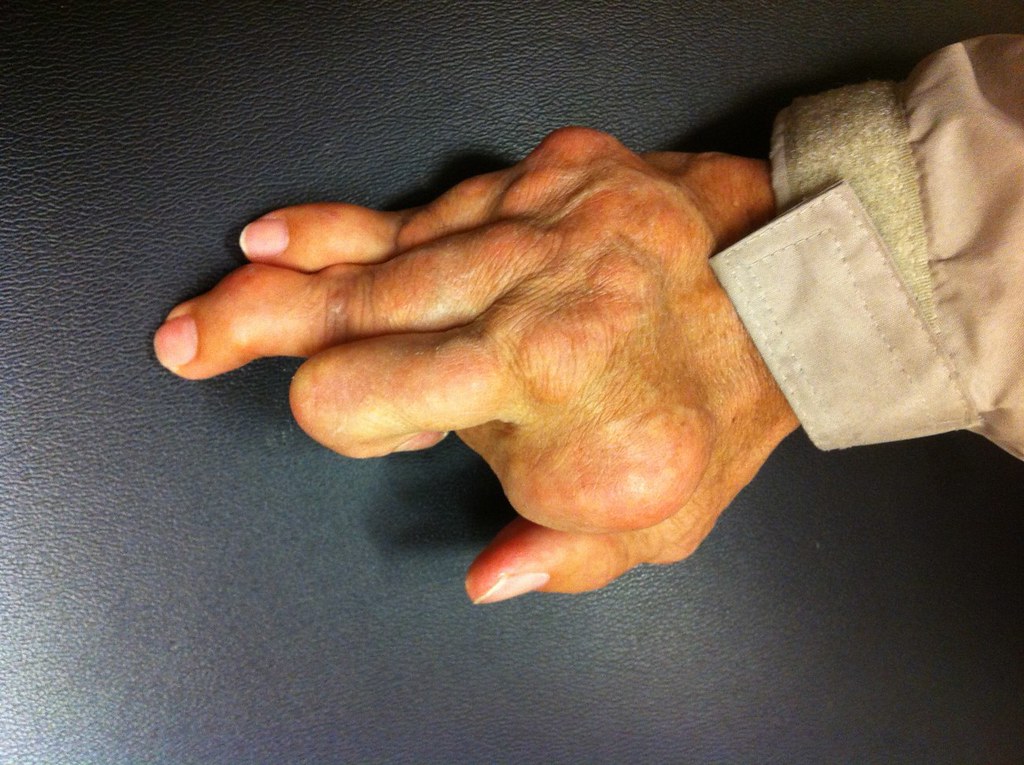FTC disclaimer: This post may contains affiliate links and we will be compensated if you click on a link and make a purchase.
Arthritis, a term that paints a picture of joint pain and inflammation, often prompts the question of whether it runs in the family.
The intricate dance of genetics and its role in the development of arthritis is a tapestry woven with many threads. This article aims to unravel the complex relationship between hereditary factors and arthritis, particularly for those with a family history of the condition.
The pursuit of this knowledge is not merely academic; understanding the genetic connections can empower individuals to make informed health decisions.
By exploring how our genes may influence the risk of arthritis, we take a step closer to unraveling the mysteries of this condition and, potentially, to unlocking new avenues for prevention and treatment.
The genetic underpinnings of arthritis are a crucial piece of the puzzle for anyone looking to piece together their health outlook with precision and care.
Types of Arthritis
Osteoarthritis, often described as a “wear and tear” condition, is the most prevalent form of arthritis, affecting over 32 million adults in the United States.
It occurs when the protective cartilage at the ends of bones deteriorates over time, leading to pain, stiffness, and swelling. Rheumatoid arthritis (RA), on the other hand, is an autoimmune disorder impacting approximately 1.3 million Americans.
It’s characterized by the immune system erroneously attacking the joints, causing inflammation that can result in severe joint damage and disability.
The onset of RA often leads to symptoms like joint pain and stiffness, especially pronounced upon waking or after periods of rest.
While the exact cause of RA remains a topic of research, studies suggest a genetic component to its development, with certain genes increasing susceptibility.
However, not all individuals with these genes will develop RA, indicating that environmental factors also play a crucial role in its manifestation.
Understanding the Role of Genetics in Arthritis
The intricate dance between genetics and rheumatoid arthritis (RA) is akin to a choreography scripted deep within our DNA. Certain genetic markers, like the HLA-DRB1 alleles, are notorious for their association with RA, acting as beacons that may signal an increased risk for the disease.
The heritability of RA has been estimated at around 60%, underscoring the significant role that genetics play in its development.
Research has identified specific gene single nucleotide polymorphisms (SNPs) such as PTPN22 and TRAF1, which are thought to influence the immune system in ways that predispose individuals to RA.
These genetic susceptibilities do not act in isolation; they are often passed down through generations, contributing to the familial clustering observed in RA.
Large-scale studies, including genome-wide association studies (GWAS), have pinpointed over 30 loci involved in RA pathogenesis, further solidifying the hereditary aspect of the condition.
Moreover, animal model studies, like those involving collagen-induced arthritis (CIA), have mirrored human genetic findings, confirming the role of these genes across species.
The interplay between environmental factors, such as smoking, and genetics highlights an intricate web of causality that leads to the manifestation of RA, making the disease a prime example of the complex nature of hereditary autoimmune disorders.
Risk Factors for Inheriting Arthritis
Arthritis, a condition affecting approximately 20% of US adults, can be influenced by both modifiable and non-modifiable risk factors. Environmental factors such as infections or joint injuries can precipitate the onset of arthritis, particularly in susceptible individuals.
However, the role of genetic predisposition is significant; a family history of arthritis can heighten one’s risk, indicating a hereditary component to this group of diseases.
Lifestyle choices further modulate this risk. For instance, obesity increases the burden on weight-bearing joints, potentially exacerbating conditions like knee osteoarthritis.
Similarly, smoking not only raises the likelihood of developing rheumatoid arthritis but can also impede disease management and physical activity, integral to mitigating arthritis symptoms.
Understanding these risk factors is pivotal in adopting preventative strategies and personalizing treatment approaches, akin to the concept of “haute couture” in personalized medicine, tailoring interventions to the individual’s unique risk profile.
Impact of Genetics on Arthritis Symptoms and Treatment
Genetic factors play a pivotal role in the onset and progression of arthritis, particularly rheumatoid arthritis (RA).
In the intricate dance of genetics and disease, researchers have pinpointed that approximately 60% of RA’s heritability can be attributed to genetic components, with certain HLA alleles (HLA-DRB1*01 and HLA-DRB1*04) being notorious for their association with RA susceptibility.
Furthermore, specific gene variants, such as those in the PTPN22 or TRAF1 genes, may not only influence the risk of developing RA but also the severity of symptoms experienced by individuals.
There’s a burgeoning field of research focused on unraveling how these genetic factors could pave the way for personalized medicine in arthritis care.
For instance, pharmacogenomic studies have uncovered genes that may predict patient responses to certain RA treatments, like tocilizumab, hinting at a future where treatments can be tailored to an individual’s genetic makeup.
The pursuit of personalized medicine in RA is akin to the fashion industry’s haute couture, where treatments are custom-fitted to the unique genetic blueprint of each patient, as opposed to a one-size-fits-all approach (Cronstein, 20).
Ongoing research and clinical trials continue to explore these connections, with the aim of implementing preventive strategies and developing targeted therapies that could significantly improve the lives of those with genetically predisposed RA (NIH).
Managing Arthritis with a Family History
If you find yourself navigating the choppy waters of a family history laden with arthritis, fear not, for there are beacons of precautionary measures you can adopt to steady your course. Knowledge is your ally, and by understanding your genetic predisposition, you can take practical steps to minimize your risk.
- Commit to lifestyle changes that promote joint health, such as maintaining a healthy weight and engaging in regular physical therapy exercises to enhance mobility.
- Avoid joint-degrading habits like smoking; they’re like pouring gasoline on the inflammatory fire of arthritis.
- Early detection is paramount. Consider genetic testing to gauge your susceptibility and engage with patient support networks to arm yourself with the latest arthritis-combatting strategies.
- Stay connected with the world of research and clinical trials—they’re like the lighthouses guiding the way towards innovative treatments and understanding the intricacies of arthritis inheritance.
Ultimately, while you cannot rewrite your genetic script, embracing proactive patient support and wielding the sword of knowledge can help you deflect the arrows of hereditary arthritis.
Conclusion
The journey through the complex landscape of arthritis reveals a tapestry woven with genetic threads that influence its onset and progression.
While the genetic component of arthritis, particularly osteoarthritis and rheumatoid arthritis, is undeniable, it is not the sole factor at play.
The interplay between multiple genes and environmental factors such as obesity and injuries contributes significantly to the development of these conditions.
Understanding the hereditary aspect of arthritis is crucial for individuals and their families, as it can inform proactive health decisions and risk management.
Research continues to unravel the genetic intricacies, providing hope for personalized treatment strategies. Staying abreast of the latest findings is vital for anyone seeking to navigate the risks associated with arthritis and underscores the importance of an informed approach to health and wellness.









